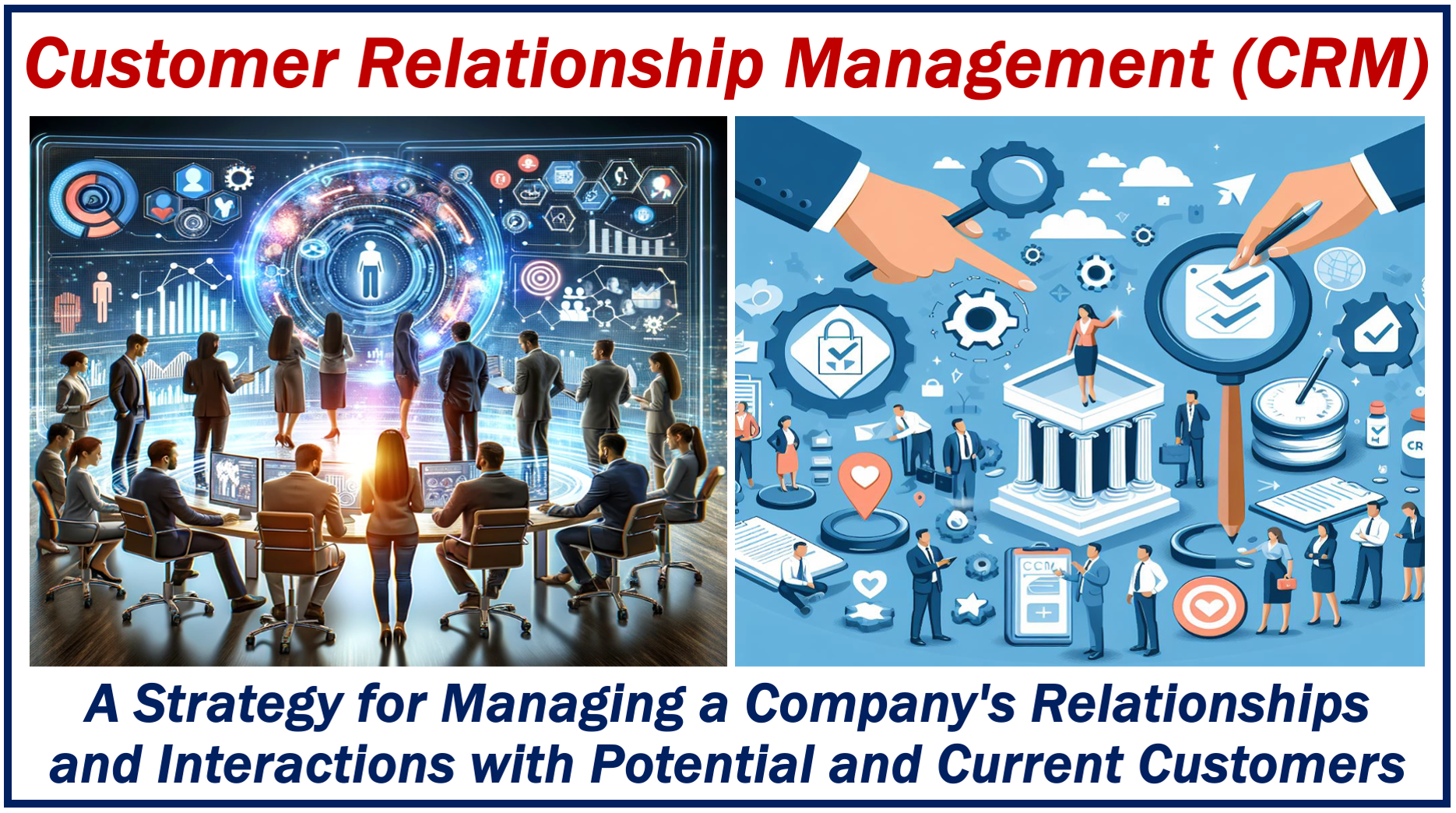Customer Relationship Management (CRM) is a strategy and technology combination that companies use to manage interactions with customers and prospects. A prospect is somebody who you think has a good chance of becoming a paying customer.
CRM systems help businesses streamline processes, build relationships with customers, improve service, and boost sales. They centralize customer information, track interactions, and automate various workflow processes within the organization, such as repetitive tasks, customer support, analytics, lead management, sales, and marketing.
CRM systems make it easier for companies to communicate with customers, keep their information organized and all in one place, and facilitate better communication between employees.
Salesforce.com has the following definition of the term:
“Customer relationship management (CRM) is a technology for managing all your company’s relationships and interactions with customers and potential customers. The goal is simple: Improve business relationships to grow your business. The system helps companies stay connected to customers, streamline processes, and improve profitability.”

Core of Customer Relationship Management (CRM)
CRM, at its core, is about gaining a better understanding of your customers, identifying their needs and wants, and finding ways to meet them. It involves gathering the following customer data:
- Contact information:
Essential for outreach and maintaining communication. - Purchase history:
Reveals past buying behavior and product preferences. - Preferences:
Helps tailor offerings to individual customer tastes. - Customer feedback and service records:
Provides insight into customer satisfaction and areas for improvement. - Interaction history across all channels:
Traces the customer’s journey and identifies preferred interaction points. - Customer lifetime value (CLV):
Predicts the future value of the customer relationship. - Loyalty and engagement metrics:
Gauges a customer’s commitment to the brand and the likelihood of repeat business. - Demographic and psychographic data:
Informs segmentation and more personalized marketing strategies. - Website and app analytics:
Offers behavioral insights to optimize digital platforms.
If you want to tailor your marketing efforts, the information listed above is critical. You will be better able to provide personalized customer service and develop products and services that meet the evolving needs of the market.
Various sources of information
Customer relationship management systems are designed to compile information from various communication channels. Examples include a company’s website, live chat, telephone, email, marketing materials, and social media platforms.
By consolidating all this information, companies can analyze customer interactions and improve their customer relationships.
This analysis allows businesses to operate with greater efficiency. They can, for example, focus on the most profitable customers, identify prospects more accurately, and tailor their offerings accordingly.
Customer Relationship Management – automation
Automation is another important feature of CRM. This helps streamline everyday tasks.
A CRM system can do the following automatically:
- Send a follow-up email after a customer makes a purchase.
- Generate tasks for salespeople based on computer interactions.
- Schedule and send reminder emails for upcoming appointments or events.
- Alert sales teams when a prospect reaches a lead-scoring threshold.
- Automatically update customer records with new interaction data.
- Assign incoming support tickets to the appropriate service agent.
- Segment customers into different marketing campaigns based on their behavior.
- Create and distribute personalized marketing content based on customer profiles.
- Process and track the status of orders or service requests in real time.
- Sync with calendars to manage sales or support follow-ups and callbacks.
This efficiency frees employee time so that they can focus on creating personal connections with customers and prospects rather than on repetitive tasks.
Customer service benefits from CRM
Customer Relationship Management systems also play a critical role in customer service. Companies can resolve queries, complaints, and other issues more quickly and efficiently if they have a detailed record of customer interaction. This results in greater customer satisfaction.
Conclusion
In today’s digital world, Customer Relationship Management is an indispensable tool. It enables businesses to interact with customers and prospects in a more personalized and efficient way, leading to greater customer satisfaction, loyalty, and bigger sales.
If you leverage the power of CRM to its full, you can ensure that your company is meeting the needs of your customers and staying competitive in the marketplace.
